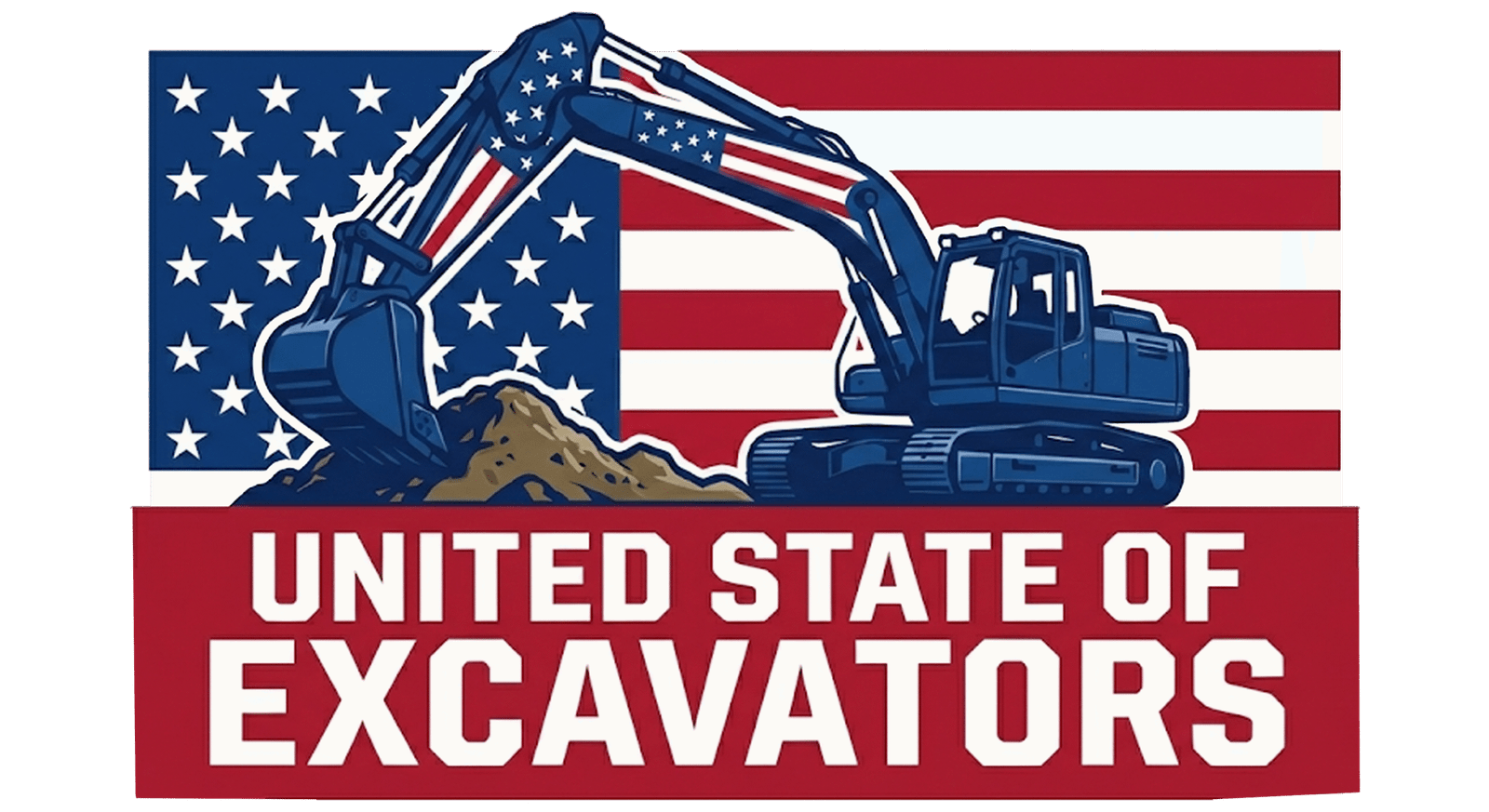Free Shipping Within USA | 1-year Warranty
Bulldozer vs Excavator: Which isBetter?
There is a silent debate about two construction industry champions: the bulldozer vs
excavator. These two pieces of equipment are clearly indispensable in construction,
landscaping, and everything in between. Yet, if you have a project to complete, the
question remains, “Which one is the best?”
Choosing between them is rarely easy once on the job site. Let’s get into the down-and-
dirty details of bulldozer vs excavator to find out what machine will be suitable for the job.
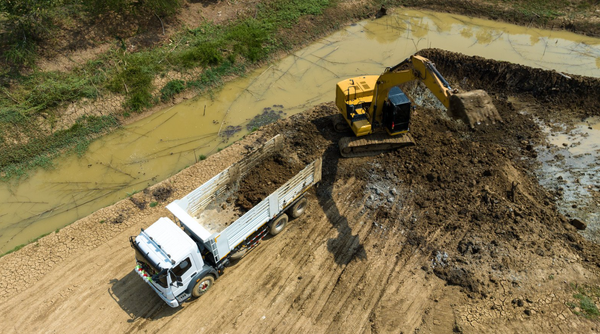
The Bulldozer
The bulldozer (often just ‘dozer’), has an incredible reputation for raw power and moving vast quantities of material. Imagine a massive piece of machinery with tracks like a tank and a big metal blade out in front to push massive piles of dirt, debris, and anything else. This giant earthmover performs great on jobs requiring nothing but brute force to move huge amounts of material on a grand scale. It excols at:
Clearing and grading land
Pushing soil and debris over long distances
Creating smooth, level surfaces
Breaking up compacted soil or rock
But here’s the thing: bulldozers are great at moving huge loads. Yet, you cannot count on them in terms of delicate touch. If you’re looking to dig precisely, you might need an excavator.
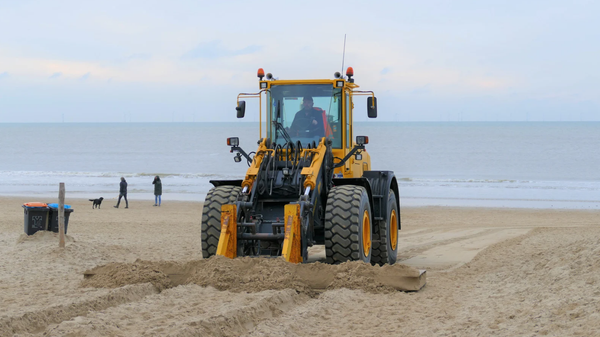
The Excavator
Bulldozers are superb at pushing things, but they do not have the delicate touch for precise tasks that require more finesse or detailed earthwork. For this type of Job, an excavator is very helpful. They shine in:
Digging trenches, foundations, and basements
Loading trucks with excavated material
Lifting and placing heavy objects
- Demolition work, when equipped with specialized attachments
Plus, if you want even more precision without hulling tonnes of machinery, meet the mini excavator.
Mini excavators have many advantages over other heavy equipment They are able to navigate tight spaces and confined areas where larger pieces of equipment cannot be operated economically. These machines can dig, trench, backfill some holes, level the ground, create grades, or drill, making them highly versatile on construction sites.
A mini excavator, for example, can dig up to 10 feet and is great at completing tasks such as pool installation, sewer line repair, or demolition of small structures. They come in different options in terms of power output, weight, add-ons, etc.
Looking for a capable mini excavator? Check out AHM mini excavator lineup.
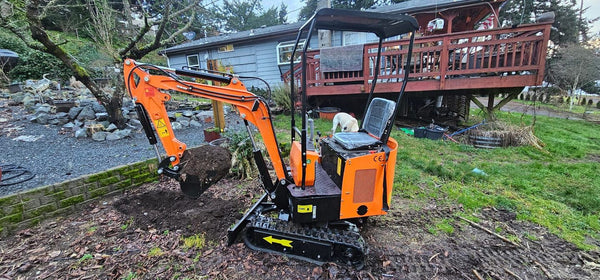
Excavator vs Bulldozer: A Head-to-Head Comparison
Comparing bulldozers and excavators head-to-head presents several essential points to be considered. Bulldozers are tracked for strength, which offers good mobility and maneuverability in rough terrain by going right over the top of most obstacles. They are not known for their speed or agility However, an excavator, especially in compact models, has better mobility. Let’s take a closer look:.
Mobility and Maneuverability
Bulldozers move around on tracks. This makes them excel in rugged terrain. They can push through and go right over obstacles. However, an excavator is more maneuverable than a bulldozer, especially mini excavators. They can be used in areas with small spaces. Plus, their ability to revolve 360 degrees makes them very effective.
Versatility
While bulldozers are specialized for pushing and grading, the excavators are versatile on top of everything. Coupled with a wide array of attachments, it can handle quite a number of functions apart from digging-that includes lifting, demolishing, and even light grading work.
Precision
Regarding precise digging and material handling, excavators have a clear advantage. Their articulated arm and bucket allow for accurate depth control and targeted material removal. For material removal at controlled depth and reach, their articulated arm and bucket prove to be the perfect solution. While less precise, bulldozers are ideal for creating flat area surfaces fast
Excavator vs Bulldozer for Clearing Land
There’s another debate: excavator vs bulldozer for clearing land. The choice often depends on the specific site conditions and project requirements.
Generally, bulldozers are more suited for big and open areas with comparatively level land. They are indeed specialized for extensive land-clearing jobs in which there is a substantial clearing of trees and heavy vegetation, as well as for moving material long distances.
Moving vast amounts of land relatively quickly is, therefore, invaluable in the initial stages of more extensive construction or development activities.
On the other hand, excavators shine when it comes to areas of changing terrain or obstruction. They are most valuable when working on selective-clearance sites or on a project that needs preservation of some element.
For example, in a construction project that requires work around trees protected for environmental reasons or under existing structures, the preferred choice would be the excavator because of its precision and maneuverability.
Excavators also come in handy where the excavated material is to be loaded directly onto trucks, cutting down on the time to remove materials. Although our concern lies with the
bulldozer vs excavator comparison, it is crucial to note the backhoe mentioned in this context
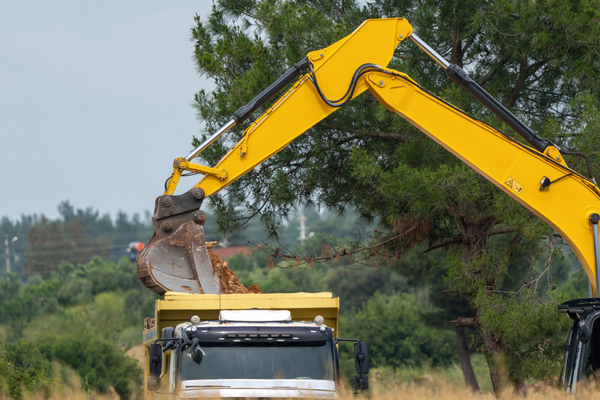
Backhoe vs Excavator vs Bulldozer
The bulldozer vs excavator comparison has been our focus. Yet, there is one more contender: the backhoe. The backhoe vs excavator vs bulldozer debate often arises in smaller to medium-sized projects where versatility is key.
A bulldozer is a machine to push heavy things around fast. An excavator is a precise machine. However, a backhoe is right in between. Backhoes can do lots of work due to their versatility; it has a loader bucket in the front and an excavator arm at the back.
Backhoes will be most valuable for projects with limited space, ranging from small to medium. Because of this, they are widely used for utility work, small construction Jobs, and landscaping, easily interchanging tasks from digging and loading to light grading.
But at the same time, backhoes are Jacks of all trades-they are masters of none. For large- scale earth moving, they can never match a bulldozer with its raw power, and for deep- digging tasks, they can’t also compete with an excavator in reach and precision.
Specialized Applications: When to Choose Each Machine
Knowing the capabilities of both will help you to determine the application. Let’s look deeper into some specific applications where one may excel over the other.
When to Choose a Bulldozer:
Land clearing: Nothing can touch a bulldozer for the daunting job of removing trees, brush, and topsoil.
Road construction: Bulldozers do an excellent job of producing flat, smooth surfaces for road beds.
Mining operations: Bulldozers effectively move large volumes of extracted material.
Snow removal: In winter maintenance, bulldozers can clear a large area of snow.
When to Choose an Excavator:
- Foundation digging: The bucket allows excavators to quickly achieve the desired depth and precision for building foundations.
- Trenching: For utility installation, excavators can make narrow or wide trenches.
- Demolition: Various special attachments convert excavators into versatile demolition tools.
- Dredging: Specially equipped excavators well execute underwater dredging.
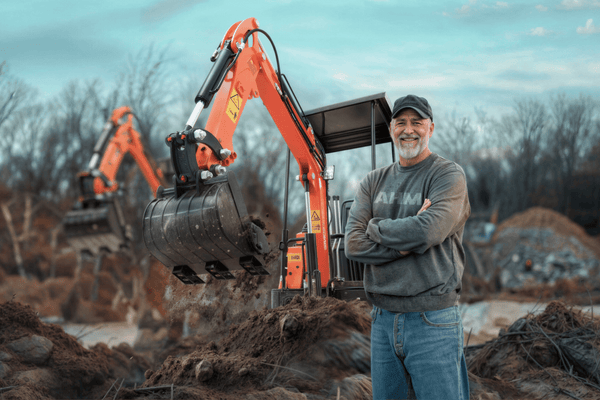
Factors to Consider When Making Your Decision
- Project Scale: The power and efficiency of giant bulldozers generally optimize large projects, but those for small, detailed work are appropriate for an excavator.
- Site Conditions: Consider the terrain and space constraints of your work site. Much better maneuverability in tight sites is offered by excavators.
- Task Variety: If your project encompasses a wide variety of tasks, an excavator may have the edge, given its multifunctionality.
- Material Type: Bulldozers process a lot of loose soil and debris, whereas excavators are more suited for digging in compact or rocky ground.
- Budget: The initial costs and operating expenses of a bulldozer compared to those of an excavator can be pretty different. Additionally, consider the long-run efficiency and the likelihood of rental fees for special attachments
- Operator Skill: Bulldozers and excavators have varying learning curves and necessary skills. Weigh how much experience your team may have had with each type of machine.
Conclusion
In the end, only you can determine which is right for your project between a bulldozer and an excavator by considering other factors like size of the job site, kind of tasks that need to be taken care of, etc.
With the information above at hand, you should be well prepared to make an intelligent and pragmatic decision that keeps productivity high on your job site.
If you’ve made your decision, and the excavator is your choice, look no further than AHM’s range of compact, precise, and powerful mini excavators.
